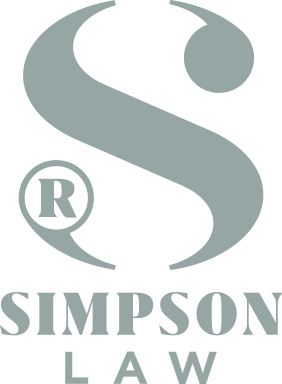People often refer to their business as their baby, but who would have known that it’s more difficult to name your business than your child? First off, you cannot copy anyone else’s name. Even if you are not copying a name, you can’t use a name that is too similar to anyone else’s name (what does “too similar” even mean?). Don’t use a descriptive or generic name. Oh, and you can’t use a deceptively misdescriptive name. You love the name or nickname of your city/state?—definitely don’t use geographically descriptive names, unless you want your competitors to use your exact same name. What about your last name? That’s easy enough—Nope, not if you want to register your business name as a trademark. Ahhhh!
I have helped business owners through forced rebrands and name changes. It’s expensive, frustrating, time-consuming, and it can be a death sentence for a new small business.
So where do you start? How do you choose a name for your new business that identifies your business for your customers, distinguishes you from your competitors, and is protectable and will not lead you into a forced rebrand down the road?
Review the five tips below to select a strong, lasting name for your company. And remember—with continued use, registration, maintenance, and policing—your business name and trademark(s) can last indefinitely.
1. Fanciful or Arbitrary Trademarks
Think Google, Apple, Starbucks, Tesla. Fanciful and arbitrary trademarks are the strongest and the easiest to protect. Fanciful marks are invented words with no dictionary or other known meaning (e.g., GOOGLE®, STARBUCKS®, PEPSI®, CLOROX® and XEROX®). Arbitrary marks are actual words with a known meaning that have nothing to do with the goods/services protected (e.g., APPLE® computers, TESLA® vehicles, and DOVE® soap). Fanciful and arbitrary marks are easier to register than suggestive and descriptive marks, and it is less likely that others are already using these marks.
2. Suggestive Trademarks
Suggestive marks suggest, but do not describe, a quality or characteristic of the products/services your business sells or provides (e.g., NETFLIX®, YOUTUBE®). While suggestive marks may be more difficult to register and police compared to fanciful and arbitrary marks, suggestive marks are registerable and many clients choose suggestive marks for marketing reasons.
3. Branding & Marketing Agency
If you are as creative (i.e., uncreative) as me, engage professionals and work with a branding and marketing agency to help select a name and design your logo.
4. Professional Trademark Search
I am all about finding the quickest, easiest, and most cost-effective solution. But be wary of using an online do-it-yourself trademark search and registration platform (e.g., Legal Zoom, Trademark Engine, etc.). When you file via these platforms, you are considered a pro se applicant—in other words, you are representing yourself before the US Patent and Trademark Office. I receive notifications when local pro se applicants file federal trademark applications via these online platforms. And unfortunately, many of these applications are filed on unregistrable marks (i.e., marks that can/should not be searched, registered or used). Even if you pay these companies for a trademark search, there are numerous considerations that licensed trademark attorneys take into account when reviewing and analyzing the results of a trademark search (e.g., likelihood of confusion with an existing mark, dilution of a famous mark, marks to avoid for start-ups with limited budgets due to excessive policing by “trademark bullies,” merely descriptive marks, deceptively misdescriptive marks, primarily merely a surname marks, geographically descriptive marks, geographically misdescriptive marks, foreign translations, nonpermissive use of an individual’s name or likeness, and the list goes on). The trademark search is the most important step of selecting a new business name, and I cannot overstate the importance of using a professional and licensed trademark attorney for the trademark clearance search and analysis—this is the most important step for avoiding a costly rebrand and an infringement allegation.
5. Federally Register Your Trademark
Lastly, you have worked hard to find and clear your new business name. Make sure you protect your name and prevent others from registering and using your name, by registering your trademark with the USPTO.
If you need advice on setting up a new business entity, naming your company, or searching and registering your new company name, schedule your consultation today. I understand the overwhelming feelings involved with starting a new business, but it is my goal to make this process quick, simple and efficient to help you build a strong legal foundation for your new business.


